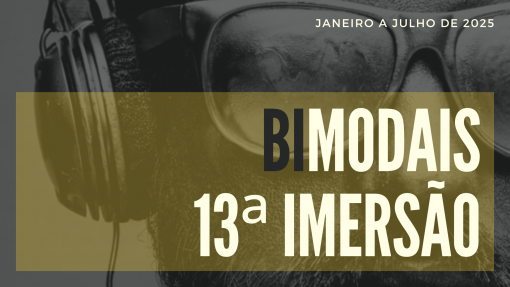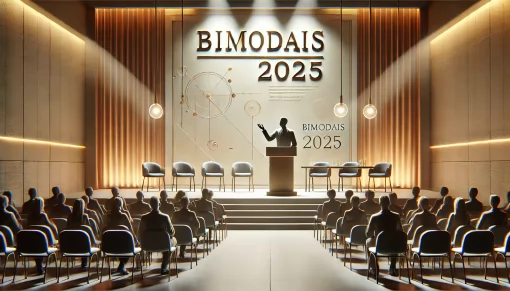Doctor in Information Science, Carlos Nepomuceno defends management 3.0: self-management, without managers or intermediaries.
It’s the end of the alpha leader. To survive and remain competitive in the digital world, companies need to implement “ant governance.” In practice, it means the end of management, the pyramidal structure, the boss-worker relationship. Get out the wolf and his pack, enter the ants. The theory is the fruit of studies that the writer and doctor in information science, Carlos Nepomuceno, has realized in the last ten years. The researcher has advised several companies, such as BNDES, Vale, Natura, Petrobras and for the City of Rio, and defends a new vision of corporate management, in his book: Management 3.0- The Crisis of Organizations (Editora Campus).
For Nepomuceno, digital disruption – and all the new strategies it requires – will kill 40 percent of the world’s companies in the next few years. He argues that it will only pass through this natural selection who implement a new model of organization. There self-management prevails, the direct relationship between supplier and consumer and business occurs on large platforms, mediated by algorithms. Translating: the taxi driver gets a passenger through an application. “You no longer have a boss talking about how to do the service. If the passenger does not like you, you have to turn around,” says Nepomuceno. In a large company, this process could be started on a small scale, in parallel, with the function of innovating, without breaking the bank of traditional structures.
Uber, Airbnb, Free Market are companies that offer services that accompany the new way of making decisions? The basic difference is that they are more decentralized?
Yes. What we see is that the very decentralization process started in the corporate world. In my theory of progressive complexity, every time we increase the demographic peak, we completely change the way you see things. The human being is the only species on the planet that does not ask for permission to grow. The wolf does not grow. If it passes a volume, it leaves killing the pups. From 1500, we became the great planetary species. This was already happening with Incas, Aztecs … but with 1 million, 2 million people, without Internet, Doctors Without Borders, with nothing. Now we turn planetary species, we go from 1 to 7 billion – and that was the great change in society. So the complexity increased (population) and there the model of society, politics, hospital, everything, became obsolete. Then you ask me why it did not happen 20 years ago? Because there was no internet.
So the future is to figure out how to integrate these 7 billion people? Are we talking about platforms in the future, not organizations?
No, Uber is an organization. If we understand organization as people responsible for solving the problems of society, we will always have. Platform is the model in which this organization solves this problem. Exit the pyramid model and enter the platform model. Leave the management and enter the curatorship. It leaves the employee-employer relationship and enters into a micro-supplier relationship with microconsumer. This is what generates value. And I broke my mind to think how to do this when the organization is too big. In the city hall of Rio, we created a participation laboratory, with volunteers that works in parallel. It was the first time we tried to implement the new methodology. Inside the organization had not worked. There it worked partially. A new gateway was created to make innovation. It was a quality leap. But it still has not worked completely.
What was the error?
The mistake is that you need to create a direct consumer relationship with the business. The public server is still connected directly. But the volunteer works separately. In a private company, this would be easier than in a public agency. The challenge is to create a model in which the boss-supplier-consumer relationship is made in self-management. If you get my point, you’re on the platform. If you falter, the platform either puts you in a lower category or takes you out of it. It’s like a cab application, for example. The taxi driver got 3 stars and then, automatically, he does not receive more calls from races than just a five-star taxi driver. But you also think: I’m in a hurry, any taxi that comes is good and accepts the three stars; All right, the platform allows you that choice.
How to educate employers and suppliers for this model of self-management?
The school has to start forming a new generation to think with its own head. We were not educated to think with our own heads. And the school has to train for this new world that will not have more employees. We have to form a school to train microentrepreneurs who will work on these platforms. The taxi guy no longer has a boss telling him to clear the bank, telling him how to do the job. It’s just him with him. If passenger does not like him, he’ll have to turn around.
How do you prepare leaders who will lead these processes in large organizations?
The leader has to learn to be a healer. The big change is to understand that the management era is over. Now is the era of curation. It was the conclusion I reached in my studies. Because? Because who is making money today is not doing management. And who is doing, is not winning. On a day-to-day basis, the leader can implement a laboratory to stop it. Leave the business running exactly the way it is. And you can open a startup, a separate area. Catch up with investor money and experiment. This startup is meant to kill the big company.
And does meritocracy in those organizations gain importance?
Yes. There’s only meritocracy in this new model. The taxi driver who goes alone to clean the car, on his own, wants to improve his assessment to be able to carry more passengers. On YouTube, Twitter, Uber is like this: the best stand out – but the good thing is that everyone can stand out. The problem today is that meritocracy within corporations is defined by a person, by a manager who often does the trick: ‘Ah, you’re cool, you’re comrade, you deserve it.’ Now, who defines in this new age is the consumer. This is what I call post-libertarianism. Power is decentralized. The big political change that will happen is that the whole force goes to the consumer. The camaraderie between manager and employee ended. This camaraderie that put us in the hole, which pulls corruption, low corporatism, lack of transparency. Now the consumer comes in and says ‘this is not cool, that is, I liked it or I did not like it’.
Following this line, there is no risk of becoming a consumer dictatorship?
This is where the algorithm comes in. Returning to the example of the taxi: the passenger takes a taxi and, at the end of the race, says that it will only give three stars in the evaluation. Outraged, the taxi driver asks: but what’s the problem? Did not you like the car? From service? Did I make a good way? The passenger says that everything was spectacular and explains the reason: you really think that a Basque is going to give 5 stars to a flamenguista. It is obvious that the algorithm has to learn culturally how the world works. The guy took 10 5-star races and one in which he scored zero, it’s obvious that that zero, point out of the curve, will not be taken into account by the rating system. The new healer and not manager, will tinker with this algorithm. You will learn that Basque does not give five stars to flamenco. Learn to separate and refine from what can influence assessment – those factors that are cultural, emotional in nature and that the service provider is not to blame. It’s a new model, different. I think in services, media, the whole area of ​​retail, commerce, transaction, can to implement the new model faster. I think today the book market is being much more harmed by the sale of used books than by the sale of electronics. We’re turning securities. Each one is a company in the market. And you have to turn.
In this model, the company ceases to have a role at all in the employee’s life, ceases to be a provider of many other things that go beyond the employee’s salary, such as health care and health care?
First, it is important to think that this change will not happen overnight. It is gradually. But you as a micro-entrepreneur will go on to put everything that was once the company’s benefit in the cost of your project, in its price. He’s learning how to manage himself. It is to see that what we have today is a slavery sofitiscada. You imagine that the employee has to depend on someone to pay for health things. Decentralization will strengthen the individual.
Companies that were born disruptive run the risk of returning to the traditional model of management by getting too large?
There is a risk, yes. But Facebook, for example, can enter other areas, have millions of employees, with few managers because it gains scale. The great thing about building this quiver is that you gain scale. And then the queen does not send anything. Business presidents are not traders: they are healers of a relationship that happens independently of it. The president of Facebook does not say what you will publish on your page, what comment will do.
What do you define by curation?
You leave the management, you are no longer responsible for the final product. Is responsible for relations between customers and suppliers. No more manager. This is the first thing on the model. The company’s role is to take care of the algorithm, to see if it is working, to avoid vandalism, to avoid fraud. This algorithm society is that of curation. The current organization was built for a sound society, based on oral and written. With today’s complexity, these organizations are unable to meet and compete with other organizations that have a better outlet. While we had no alternative, we followed what we had. We need something today that I call civilizational.









